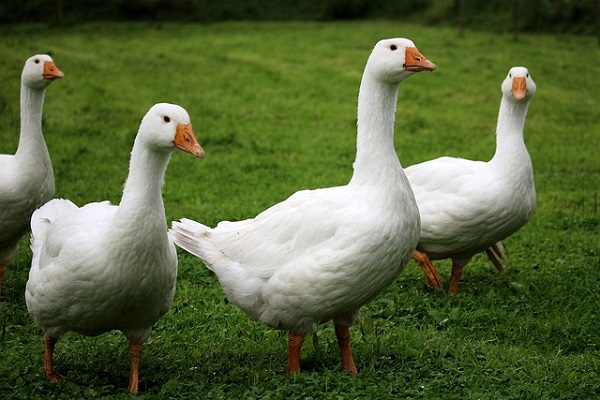 Credit: Pixabay
Credit: Pixabay
On Tuesday 28 October 2025, Luxembourg's Ministry of Agriculture, Food and Viticulture announced the detection of new cases of H5N1 avian influenza (bird flu) among wild birds in the Grand Duchy.
To date, nine cases have been confirmed in cranes and one in a heron.
In response, the Luxembourg Veterinary and Food Administration (ALVA) has reviewed the situation and raised the risk level of the disease being introduced into poultry farms to "high".
Faced with this elevated risk of transmission of the virus from wild birds to domestic poultry, ALVA has strengthened preventive measures, notably by prohibiting all exhibitions, fairs and markets involving poultry or captive birds until further notice.
The following preventive measures, introduced on Wednesday 22 October 2025, remain fully in effect:
- poultry must be kept in enclosed premises;
- feeding and watering must take place indoors or in a way that prevents contact with wild birds;
- poultry may be taken outside enclosed premises provided that the exit areas are protected by netting to avoid contact with wild birds;
- biosecurity rules must be strictly observed;
- any unusual poultry mortality, symptoms suggestive of bird flu or changes in production parameters (e.g. reduced feed and/or water consumption, decreased egg production, abnormal mortality) must be reported to a veterinarian.
ALVA recalled that avian influenza is a highly contagious viral disease affecting almost all bird species. The severity of the disease varies from animal to animal and depends on the viral strain, the environment and any other infections. Contamination can occur through direct contact with sick animals or through exposure to contaminated material. Mammals may become infected in exceptional cases, such as when they eat the carcass of an infected bird or come into close contact with the virus. Contamination in humans is rare.
ALVA stressed that avian influenza does not pose a public health risk through the consumption of eggs or poultry meat.








